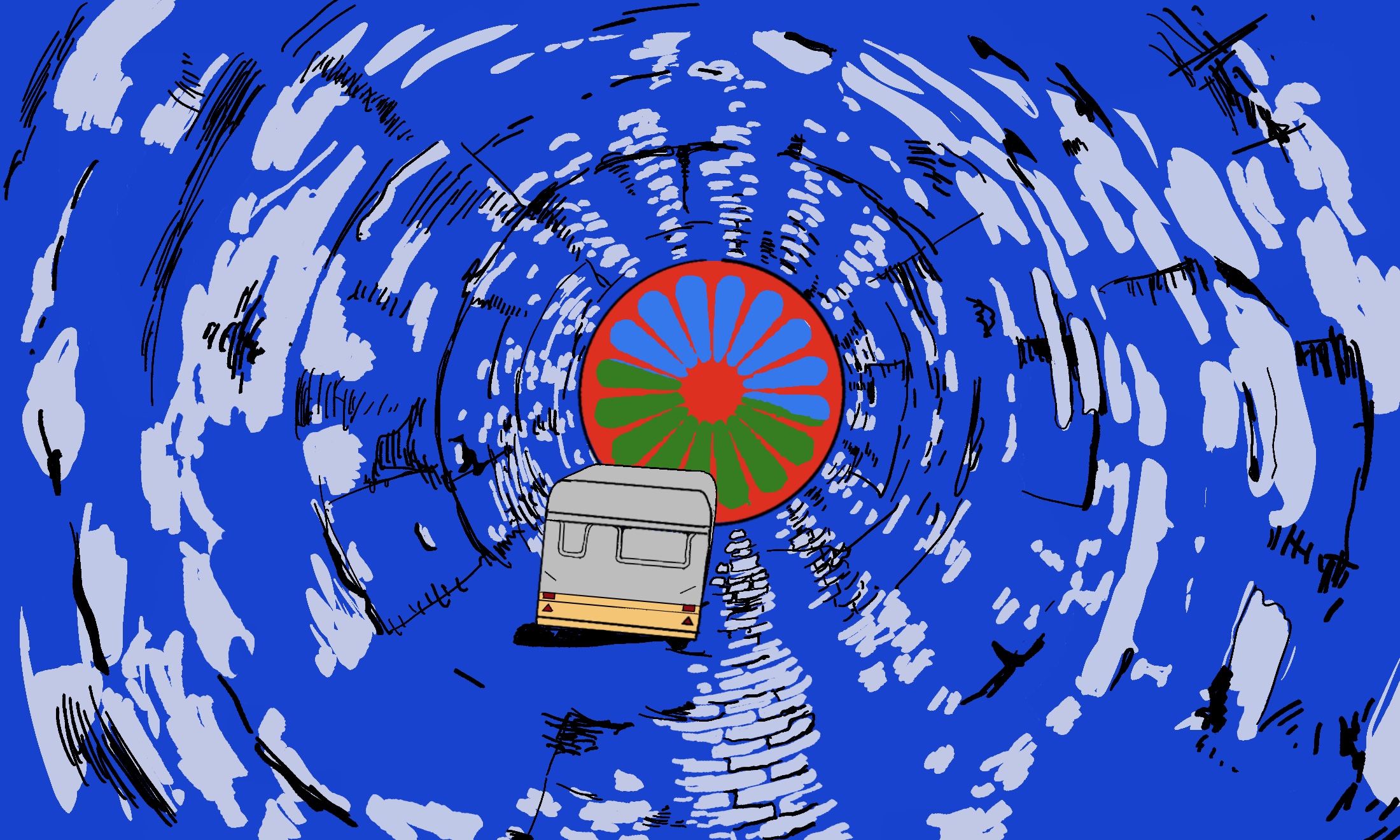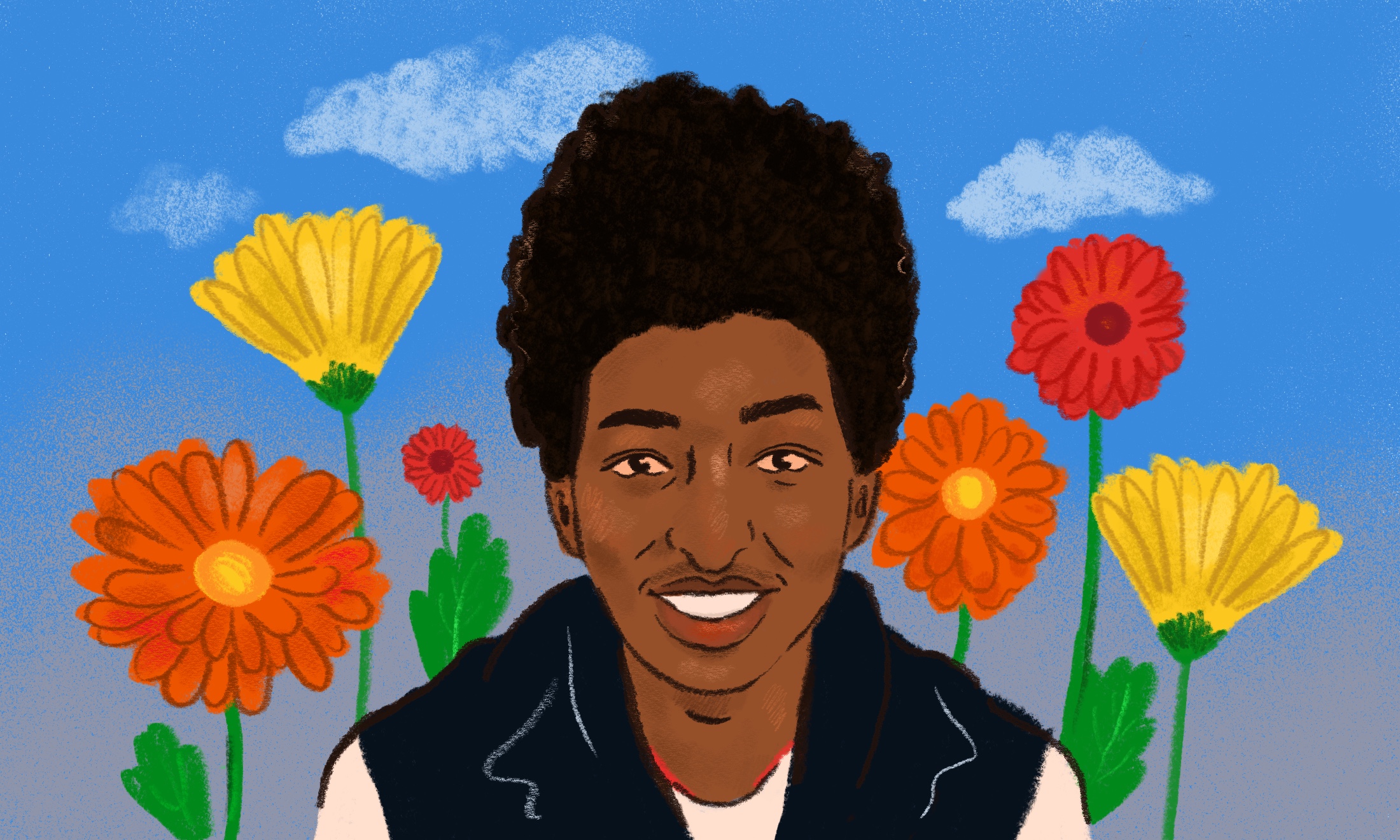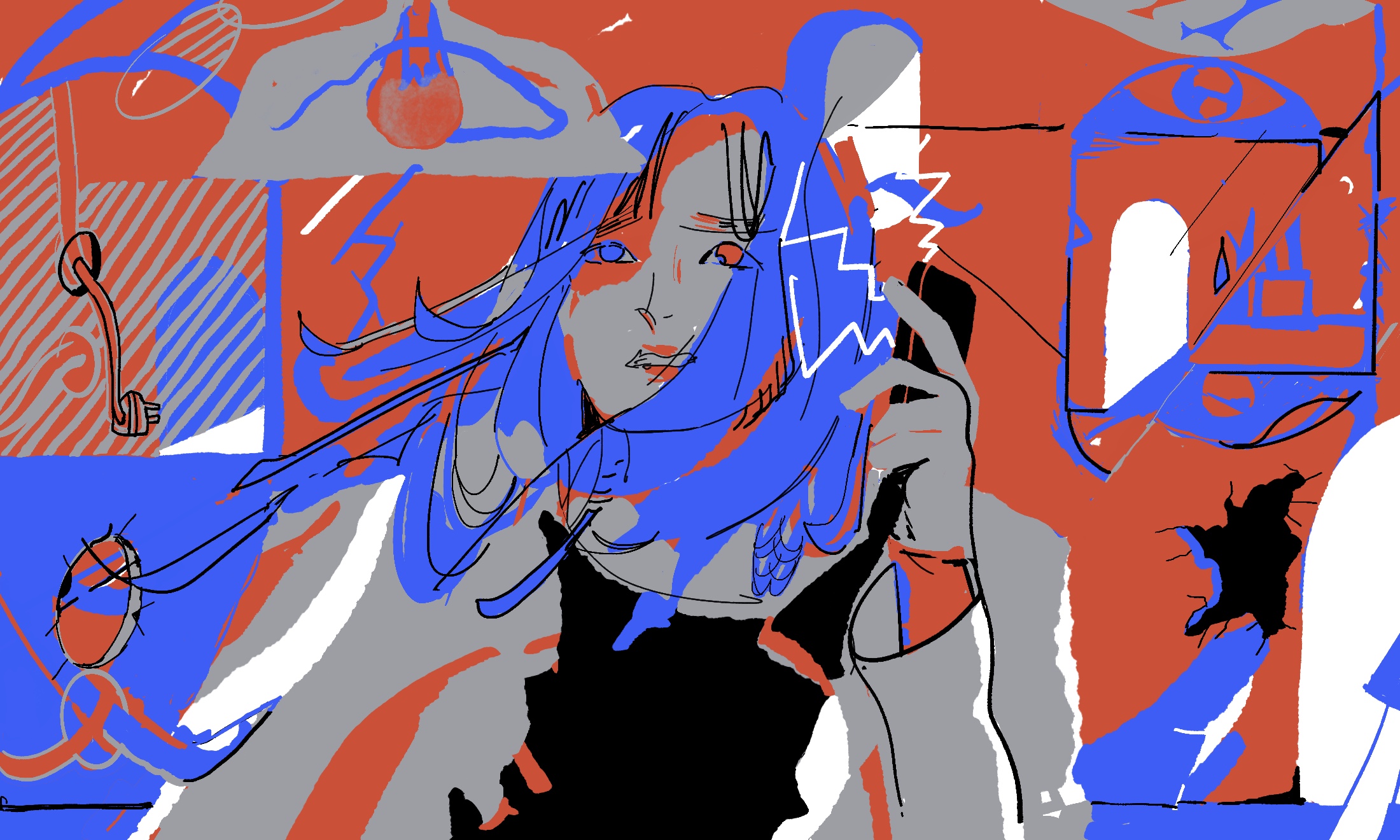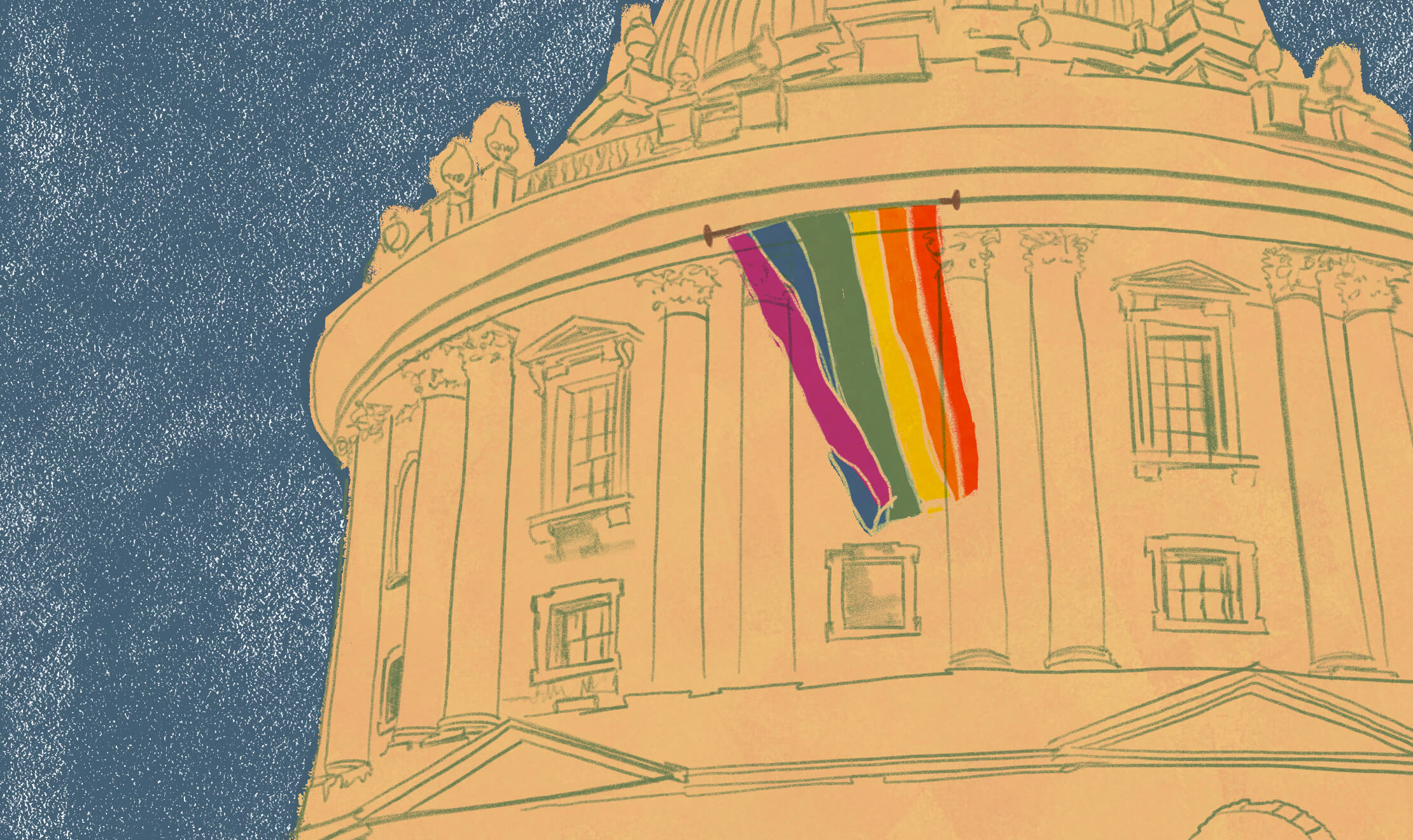Inside the online forums where anti-Gypsy, Roma and Traveller sentiment thrives
Travellers are experiencing a more sinister attempt by social media users to block them from coexisting in communities – beyond new police powers.
Cyrine Sinti
23 Nov 2022

Ning Yang
Content warning: This article contains mention of discriminatory language.
When Laura* logged onto Facebook and saw the words “Traveller infestation on the green again!”, she felt horrified. The comment was posted in the private community group she’d joined in late 2019, alongside a photograph of her caravan. Suddenly, she found herself faced with an online campaign designed to drive her family out of town.
Laura is an Irish Traveller who has lived ‘on the road’ all of her life. She continued the tradition with her own family but her two eldest children had been attending a school in Essex for years with no difficulty, even being given resources to aid their home-schooling. But when Laura tried to enrol her youngest child last year, she discovered posts within local Facebook groups warning community members that “We’ve got Gypsies”, with parents sharing derogatory stereotypes and commenting on their concerns about spreading nits and ‘dog-stealing’.
Stories like Laura’s are rising among marginalised groups amid anti-Traveller sentiment and targeted political legislation. In April this year, after months of campaigning and protest from the Traveller community and allies, the Police, Crime, Sentencing and Courts Act was passed, effectively criminalising the Traveller way of life. The bill heightens police powers to seize and impound vehicles at will, as well as capping noise levels at protests and granting officers further powers of control.
“Racism has been made even more acceptable – if that was possible – towards Gypsies, Roma and Travellers,” says Sherrie Smith, Romany activist and co-founder of the Drive2Survive campaign against the policing bill. “Police are enforcing moving families on, often during the night and without doing welfare checks with no viable transit or site provision. Homes and vehicles have been seized. This is catastrophic for us as a community.” Despite only 3,000 caravans officially identified as ‘living on the road’, the ramifications of the bill are “affecting us all”, she says, including ‘settled’ Travellers.
“The Policing Act gives the police greater powers to evict Gypsies and Travellers from unauthorised encampments which they didn’t want and don’t need,” says Marc Willers QC, a barrister who has fought for GRT rights for years. “By bringing in these new powers this government is pandering to prejudice when it should be building more permanent and transit caravan sites for those with nowhere else to go.”
“Racism has been made even more acceptable – if that was possible – towards Gypsies, Roma and Travellers”
Sherrie Smith
It’s in this climate that neighbourhood groups on social media sites such as Facebook, are acting as weaponised hubs to focus on minorities and allow hate speech to thrive. gal-dem has spoken to Travellers from across the UK and heard how they are experiencing more online hate against their communities. In online groups where neighbours normally offer up unwanted furniture, second-hand baby clothes, or post callouts for local plumbers or car sharing, Travellers spoke of a more sinister and organised attempt to block them from coexisting in towns and cities – beyond the new police powers.
Sherrie Smith says the anti-GRT discourse spreading through online groups has deep ramifications. “It’s constant and affects our everyday outcomes from mental health to education and employment. People seem to say what they want online to us and no one seems to care.”
Some comments appear to highlight abuse against Travellers, as residents within these localised groups update each other on the exact streets where Travellers have been “spotted”, describing situations in which they have followed Travellers with dogs in attempts to intimidate them, and encouraging others to do the same. On public Facebook groups for neighbourhoods across the country, gal-dem also found posts sharing unsolicited pictures taken of families sitting outside their caravans, children included. In a Facebook group for a community in the south of England, gal-dem also found posts tagging local schools and businesses while asking for bailiffs specialising in “no-nonsense, non-woke, Traveller evictions”.
Travellers fear that this rhetoric may incite violence and unrest, threatening peaceful evictions – where a member of the council or police serve legal court orders after liaising with members of the Traveller community.
gal-dem found evidence of local councillors and political party representatives using their professional Facebook pages and social media sites to engage in anti-Traveller discourse. In one example, George Robinson, a Conservative councillor in Calderdale, West Yorkshire, shared comments and Facebook videos calling for locals to unite against Travellers in the area. Some community members believe the comments underneath his posts amount to hate speech; yet they appear to remain unmoderated.
“By bringing in these new powers this government is pandering to prejudice”
Marc Willers
Josie* who lives in the area with her husband and their two children, says Robinson’s behaviour has turned her from a Conservative voter to considering voting Labour for the first time in their lives. “I know it’s frustrating when some Travellers leave a mess, but it’s not every group that passes through, and I’ve seen worse around pubs or when there’s been an event on. I don’t feel comfortable letting anyone know we’re Travellers because it seems like they’d turn up with pitchforks, with George filming everything.”
“He always talks about how the community worked together and how the community united against ‘evil’ Travellers; aren’t we part of the same community?” says Tom*, her husband.
“I pay my taxes. My wife pays her taxes. We take part in school events and church events and we don’t feel comfortable sharing that we’re Travellers because of this campaign against all of us. He doesn’t do anything about the comments under his videos. I don’t think he’d even care that he has Travellers in his own community. We’re nothing to him,” Tom adds.
Robinson’s not the only political figure to have targeted Travellers in the area. In nearby Calder Valley, Conservative MP Craig Whittaker, who made controversial comments about marginalised communities in 2020 during the height of the Covid-19 pandemic, has written articles on Travellers and the “good, hard-working” people he says deal with Traveller “destruction”. On his professional and public Facebook page in July, Whittaker posted warnings about a group of Travellers who had arrived in the area, as well as in August acknowledging the restrictions of Traveller rights due to the PCSC Bill.
gal-dem has reached out to MP Craig Whittaker and Councillor George Robinson for comment but has yet to receive a response.
The openness of anti-GRT rhetoric – especially from elected council members and politicians – has a damaging impact on settled Travellers. Laura, based in Essex, feels personally targeted by the anti-Traveller discourse she saw on her children’s school’s Facebook group. She immediately pulled her children from the school. “It was degrading. I felt subhuman. People forget that we have feelings too, just like they do.”
She fears online forums are becoming an unwitting hunting ground for Traveller communities like hers, made worse by the introduction of the new Policing Bill. “I can’t remember a time where people would study a new government policy but with [the PCSC Bill], people have it memorised. They know exactly what they need to do and how powerless it leaves us. They don’t care if kids are put in care because the police have seized our homes. But they pretend to be protecting their kids. What about ours?”
A spokesperson from Meta, Facebook’s owner, said: “This community is protected by our hate speech policies and we will remove content that breaks our rules. The posts shared in this instance don’t violate these policies.”
A survey conducted by Friends, Families and Travellers in 2020 found 78% of Gypsies, Roma and Traveller respondents regularly deal with hate crimes and hate speech incidents. The majority of reports made to the support resource Report Racism GRT are of online hate. However, many people are reluctant to report these incidents to the police due to mistrust and “lack of confidence that the police would act”.
Online hate against GRT communities manifests primarily through social media and is incited by the wider media, according to researchers at Goldsmiths University. In a 2020 paper on online hate speech towards GRT, they found the main triggers for online hate were the arrival of new camps and a shortage of legitimate sites, calling for a more serious response to hate speech from media outlets, social media platforms and public authorities.
In April this year, organisations supporting GRT people including Minority Rights International and GATE Herts, submitted a joint report to the United Nations condemning the lack of adequate protections available to the community.
Laura believes the essential change needs to come from above. “The same government that’s got people bold enough to speak this way without consequences have to be the ones to enforce legislation that takes online hate speech seriously,” she says. “Monitor comments, require people in the community to take sensitivity training or even just let Travellers speak at community meetings so they can see that we aren’t monsters. We are real people and we deserve to live in peace too.”
*Names have been changed to protect anonymity.
This article was amended on 23 November to add a comment from Meta.
The contribution of our members is crucial. Their support enables us to be proudly independent, challenge the whitewashed media landscape and most importantly, platform the work of marginalised communities. To continue this mission, we need to grow gal-dem to 6,000 members – and we can only do this with your support.
As a member you will enjoy exclusive access to our gal-dem Discord channel and Culture Club, live chats with our editors, skill shares, discounts, events, newsletters and more! Support our community and become a member today from as little as £4.99 a month.

Britain’s policing was built on racism. Abolition is unavoidable

How Pakistan’s Khwaja Sira and transgender communities are fearing and fighting for their futures

Their anti-rape performance went viral globally. Now what?






